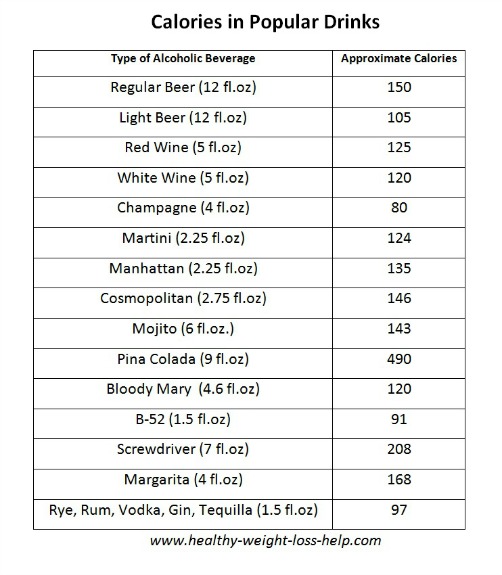| Back to Back Issues Page |
 |
|
HWLH News Letter for August 2021 - Issue #0093 - How Alcohol Affects Weight Loss August 01, 2021 |
Welcome to HWLH News LetterAugust 2021 - #093 - How Alcohol Affects Weight LossHello Everyone Can you believe it’s August already? I can’t believe how quickly this summer is going by. I hope everyone is having a fun summer so far. Talking about fun, well most of us folks like to enjoy an alcoholic beverage at times with friends and family. Whether it’s a frosty beer, glass of wine or a fancy cocktail, there are many times in our lives where we may be relaxing or celebrating with a drink or two. If you are are trying to lose weight, but still enjoy a few drinks, then it is important that you limit your alcohol intake for two main reasons. The first is because some drinks can be heavy in the calorie department and the second is too much alcohol stresses out your liver. Both of these actions not only hinder weight loss but usually end up in weight gain. 
I've never been a big fan of calorie counting, but if there is ever a time you should be aware of calories is when you are consuming alcoholic beverages. It is easy to consume a stupidly high amount of calories in a short amount of time if you enjoy drinking. Here is a calorie chart of some popular drinks. These can be helpful giving us a pretty good idea of just how many calories we are ingesting. 
Calorie content will vary by recipe. If you are adding soda to the stronger liquors ( i.e. rum and coke), remember to add on the calories of the mix too. How Alcohol Affects Weight Loss: The number one thing to remember is that the calories in alcohol are empty calories, they do not provide any nutrition for our bodies. When you consume more calories than your body needs you will gain weight. One of the biggest drawbacks of drinking when wanting to lose weight is the way our bodies burn up those extra calories. Alcohol breaks down into the form of acetate, which the body will burn up before any other calories that we've eaten or stored, including fat and even sugar. Also alcohol in our system makes extra work for the liver. In fact the liver gets so busy breaking down that drink that it will just store the other fats in the body. In other words, alcohol temporarily inhibits "lipid oxidation" which means when you have alcohol in your system, it is harder for your body to break down and burn fat. Alcohol is particularly toxic to the liver when consumed in excessive amounts. The liver begins to lose its functional capacity. How well your liver functions and weight gain are directly connected. If your liver is sluggish, weight loss will be extremely hard and even impossible for many. Got the munchies? Some studies have shown that after tipping back a couple of drinks that this can stimulate ones appetite. This can be particularly true when you're at a party that is serving food, especially a buffet style set up. It can become so easy to graze at all those tables of food. It’s hard enough to avoid fatty or sugary foods on an every day basis, even when there is no alcohol involved.
Having one too many the night before can leave you with a tiring hangover the next day. Forget the exercise today and pray that you can just make it through the day. Let's face it, a hangover leaves you dehydrated, clumsy and just plain tired. Thinking about your weight loss goals, that can be a good motivator not to over drink. Avoid high calorie drinks if you are trying to lose weight. Perhaps chose a light beer over a regular one or use diet soda as a mix.
Like everything else in this world, moderation is truly the key. What is Drinking in Moderation: According to the "Dietary Guidelines for Americans 2020-2025,” U.S. Department of Health and Human Services and U.S. Department of Agriculture, adults of legal drinking age can choose not to drink or to drink in moderation by limiting intake to 2 drinks or less in a day for men and 1 drink or less in a day for women, when alcohol is consumed. In fact, this type of moderation has some studies showing that drinking in moderation can actually be good for you offering benefits by reducing the risk of heart disease, stroke and heart attack. A standard drink is considered to be: A 12-ounce bottle or can of regular beer A five-ounce glass of dinner wine 1 shot of liquor or spirits (either straight or in a mixed drink) Whether you drink or refrain from alcohol altogether you would still want to maintain a healthy lifestyle by including things such as exercise and eating a healthy diet. General Guidelines for Alcohol and Weight Loss: When dieting, try to avoid alcohol completely. Or if you like to indulge we know the trick is to drink in moderation and choose lower calorie drinks if you can. Cheers :)
Take care of yourselves and each other Until next time….
|
| Back to Back Issues Page |